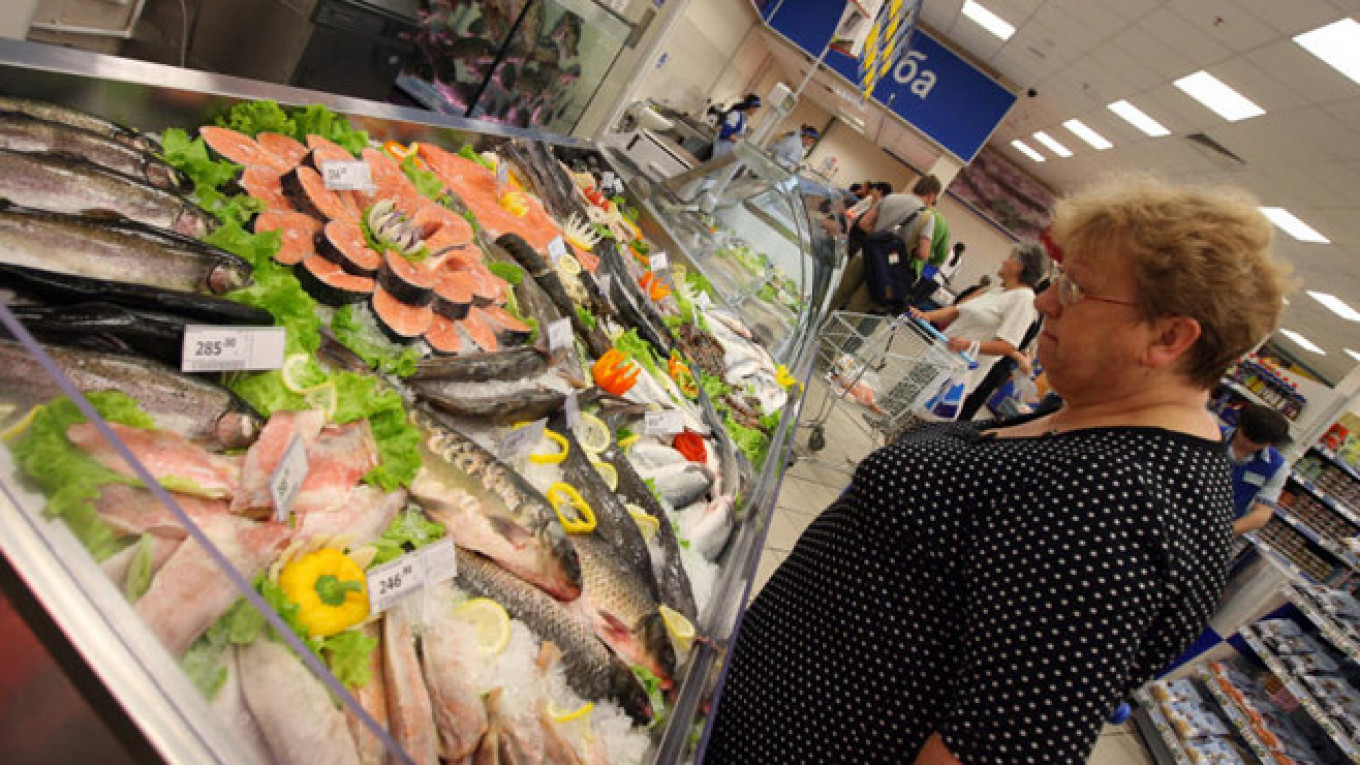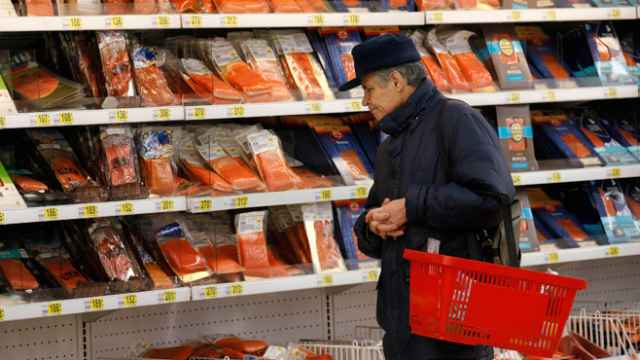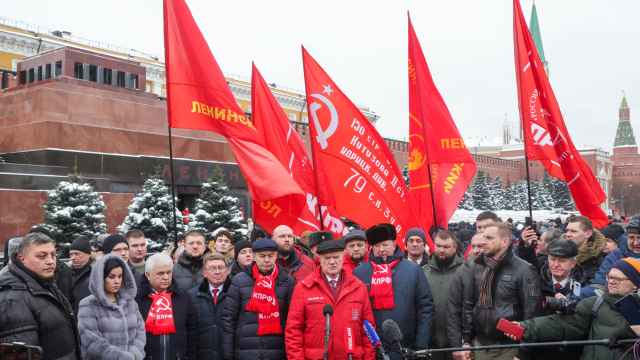Officials in both Russia and Ukraine are considering tougher trade protections to keep food prices from spiraling as their currencies collapse, with Moscow taking more aggressive steps than Kiev to control exports.
The two countries, on opposite sides of a war in eastern Ukraine that has killed more than 5,600 people, are both among the world's biggest exporters of wheat through Black Sea ports that help feed Africa and the Middle East.
Both have seen their currencies collapse in the past year, making exports more valuable in local terms and driving up the politically sensitive domestic price of food.
The governments of both countries have already taken steps to limit exports of wheat to keep domestic bread prices stable, and both are considering releasing wheat and flour from stockpiles to keep up supplies. Officials may toughen export regulations for other staples including barley, maize and flour.
"They are likely to continue to defend the domestic market in an attempt to prepare for a worse situation," said a trader who exports grain from the Black Sea.
The Russian ruble has lost nearly half its value and the Ukrainian hryvna has fallen by more than 70 percent against the dollar since early 2014. Food price inflation reached 20.7 percent year-on-year in Russia and 30.1 percent in Ukraine in January.
Among steps taken so far, Moscow imposed informal curbs on wheat exports in December and introduced an export tax from February. Kiev has fixed a limit for wheat exports in the first half of 2015.
Both countries had good wheat crops this past season, allowing them to export more wheat than the previous year while still keeping more for domestic use. For now, Russia appears to be doing more to keep its surplus wheat at home.
According to U.S. Department of Agriculture figures, Russia is forecast to cut the share of its crop that is exported to 33.9 percent of its harvest of 59 million tons of wheat this season, compared with 35.6 percent of its 52 million tons last year.
Ukraine will actually increase the percentage that is exported, to 44.4 percent of its wheat harvest of 24.75 million tons, compared to 43.8 percent of a 22.28 million ton harvest last year.
Any export limits for next season are likely to depend on the size of the crop and whether there is enough to meet domestic demand and replenish stockpiles.
A mild, wet winter so far may bode well for Ukraine's 2015-16, while Russia's prospects look weak as winter grains are in poor condition. Both countries' crops could be hurt by higher costs to farmers as a result of the economic crisis.
So far, Russia has had more success than Ukraine in keeping a lid on bread prices. According to official data, bread prices in Russia rose 11 percent in January compared to a year ago, while in Ukraine they rose 41 percent.
Food products that largely rely on imports have risen more in both countries. The price for fish was 26 percent higher in Russia and 47 percent higher in Ukraine in January than a year ago. The rises are taking place against a trend of falling food prices globally.
More Controls
In Ukraine, the currency fall and rise in food prices have been driven by war and the near bankruptcy of the state.
In Russia, they have been driven mainly by the fall in prices of energy exports and exacerbated both by Western economic sanctions and by Moscow's response to those sanctions — a self-imposed ban on most imports of Western food products.
Sberbank CIB analysts said in a report that allowing Russia's one-year agricultural import ban to lapse in August would cut food price inflation by a full percentage point.
Moscow has made clear that more export controls could be in the works, as well as steps to lower the cost of imports. Russia's Agriculture Ministry said on Wednesday it may review its wheat export tax once it gets data for February.
Igor Artemyev, the head of Russia's commerce regulator, the State Anti-Monopoly Service, said on Friday that Moscow should also consider imposing export duties on rye, barley and maize.
He also suggested cutting import taxes on raw sugar, which he said was in short supply, and on vegetables and fruits.
Meanwhile, Ukrainian measures to curb exports have so far been milder. Kiev's top bread maker Kievkhleb said last week bakers would ask the government to restrict wheat flour exports to help keep bread prices down, but would not ask for a cut in much larger exports of raw grain.
Ukraine's Deputy Agriculture Minister Volodymyr Lapa said Kiev would address the price of wheat primarily by selling reserves from the state stockpiles.
"If we are talking about bread prices, the state has enough resources of grain … to subsidize 'social' bread," Lapa said.
In Russia, politicians have also trumpeted plans for administrative price controls on food, such as a ban on increases by more than 30 percent for some staples in a single month. Prosecutors have announced swoops on shops to punish excessive price hikes.
Some supermarkets have announced voluntary price freezes for some goods, but financial analysts say retailers are unlikely to absorb a big hit to their profit margins to keep prices lower.
"Those actions have more in common with promotional campaigns rather than suggest material margin investments," Credit Suisse said in a report.
A Message from The Moscow Times:
Dear readers,
We are facing unprecedented challenges. Russia's Prosecutor General's Office has designated The Moscow Times as an "undesirable" organization, criminalizing our work and putting our staff at risk of prosecution. This follows our earlier unjust labeling as a "foreign agent."
These actions are direct attempts to silence independent journalism in Russia. The authorities claim our work "discredits the decisions of the Russian leadership." We see things differently: we strive to provide accurate, unbiased reporting on Russia.
We, the journalists of The Moscow Times, refuse to be silenced. But to continue our work, we need your help.
Your support, no matter how small, makes a world of difference. If you can, please support us monthly starting from just $2. It's quick to set up, and every contribution makes a significant impact.
By supporting The Moscow Times, you're defending open, independent journalism in the face of repression. Thank you for standing with us.
Remind me later.






